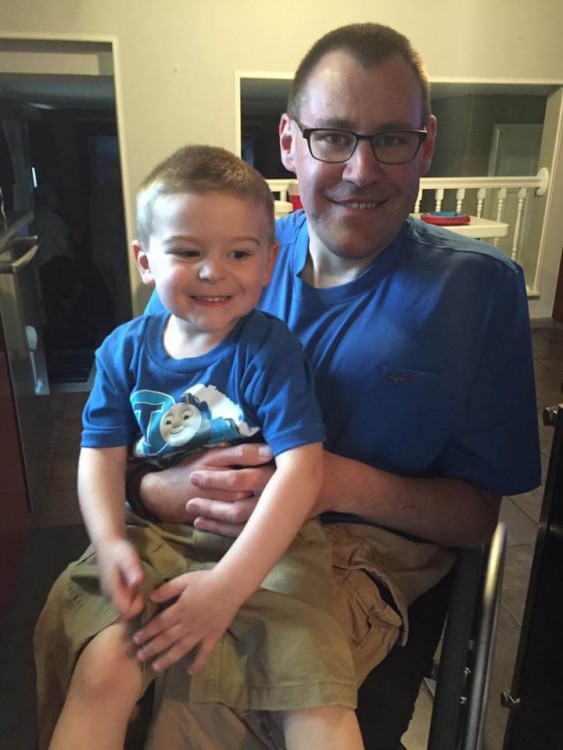Health care should not be as challenging as it is. Patients are often left fending for themselves, getting little direction from anyone. In addition, being willing to use necessary and potentially groundbreaking new products should be something that is encouraged, not discouraged.
I have spina bifida. I’m in a wheelchair. When I was born in 1980, doctors knew little about my condition; my mom was told that I would live about six months.

Here I am, 35 years later. I have never wanted anyone to feel sorry for me; this is who I am! As many of my close friends know, I am not one to want to ask for help, whether it be help opening a door or assisting with my medical care. I believe in having a positive attitude, facing what I have been given, and making the most of it. Fortunately, I have a loving family and friends and have experienced many great things in my life. I also know there are people who struggle every day with worse situations than mine.
For over two years I have been dealing with a pressure ulcer, and have exhausted all other routinely used treatments. I’d like to return to the everyday life of work and doing the things I enjoy. While at a recent doctor’s appointment, I was recommended a fairly advanced product (PRP-Platelet Rich Plasma) that would assist in wound healing.
This treatment has been denied by my insurance for three reasons: it is experimental, it has been deemed “not medically necessary,” and because of my contract, it would not be covered.
To me, being a guinea pig is exciting. Of course, there’s the unknown, but this could possibly be the one that works. Everything medically available now must have been “experimental” at some point. Some treatments work and some don’t. There may be that one thing out there to help an individual, like me, in need.
I consider the term “medically necessary” to be extremely arbitrary. What is medically necessary for me may not be for someone else.
Lastly, not being able to get medical care that is necessary due to a specific contract is unsettling. Someone in need of a specific medical intervention essential to their unique case should not be denied because of their plan.
My time in “the chair” has afforded me many opportunities to experience the not-so-pleasant side of the insurance game. It has left this otherwise upbeat, positive person frustrated. Why would a medical supply store refuse to submit a purchase as an insurance claim? Loss of revenue. Why will insurance not cover a new wheelchair with a stronger titanium frame? Titanium is a “luxury.”
Believe me, nothing about being in a wheelchair is a luxury. Wheelchairs are expected to last from three to five years before insurance covers another. My wheelchair is part of me. It gets a lot of wear and tear and needs to be replaced more often than insurance allows. I could go on and on.
I am not a complainer. I do, however, feel the need to inform decision-makers that it’s time to ask questions, do research, and investigate issues that desperately need to be addressed in all aspects of healthcare, not just insurance, both locally and nationally.
Health care reform is critical for people with disabilities, for all people. Medical care and insurance can cost thousands of dollars, yet people still can’t get what they require. Something is wrong.
Health care should be about helping people to maintain good health, heal safely, and enjoy a quality life, not the frustration it has become.
This story originally appeared on Push Living.

